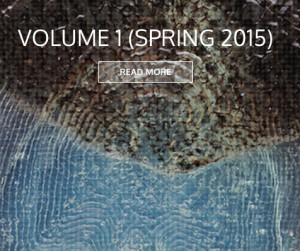Special Topics in American Studies: American Histories and Futures of Climate Change
Instructor: Sara Grossman
sargross@andromeda.rutgers.edu
Summer 2015 Online Course 5/26-7/2
Description: Climate change touches all aspects of human life. It impacts small and large-scale scenarios, from the choices we make about transportation to the ebb and flow of global financial markets. As such, climate change is a global, large-scale phenomenon that manifests in local spaces and in everyday situations. This online course addresses the history American climates and American climate change in American environmental literature, policy, and media. Throughout our time together, we will learn to track the multi-scalar manifestations of “climate” and “climate change” historically and in today’s crisis landscape. Students with backgrounds in the humanities are encouraged to sign up, but a background in the humanities is in no way required. Given the very human and global stakes of the course topic, students from diverse disciplinary backgrounds, including business, finance, psychology, and/or the quantitative sciences, are encouraged to sign up. We will work through four different units throughout the course. First, a brief history of environmentalism in America between 1890 and 1960; second, the history and aftermath of toxic dumping and industrial pollution from 1960-2010; third, experiments in real-time environmental scenario planning and information tracking from recent weather events; and, finally, future scenario-planning for our ever warming and watery earth.
Instead of writing papers, students will be responsible for two “born-digital” projects that utilize historic and contemporary environmental datasets to illuminate something vital about the history of environmental concerns and climate change in America. Students will also be responsible for marking up weekly readings through Genius, as well as contributing a 250 word reflective statement on the weekly readings and theme. The born digital projects that students create might range from tracking and analyzing the manifestation of climate events through twitter or instagram, working with contemporary world climate data, or tracking and analyzing the rise of the language of climate change through Google Ngrams.
Special Topics in American Studies: Race and the Digital
Instructor: Asha Best
asbest@scarletmail.rutgers.edu
Summer 2015 Online Course 7/6-8/12
This writing intensive course is about how race is performed, articulated and surveilled through the digital. The readings and online discussions are divided into three broad sections. We start by gaining a more critical understanding of what race is, what race does and how contemporary racial meanings are (re)produced in the U.S. by grappling with some of the questions and concepts central to the field of Critical Race Theory. We then discuss the creation of the internet in the context of U.S. nationalism and alongside the changing discourse of race. Besides the internet we’ll also reconsider digital technology that we’ve come to think of as outdated (like mixtapes and boomboxes). We’ll answer questions like: how do racialized groups use the digital to construct or respond to their social worlds? Towards the end of the semester we close by discussing how race is distributed and produced in the age of “selfies” and social media.
 The Journal of Biological Sciences at Rutgers Camden is a scientific report by undergraduate students in the Department of Biology at Rutgers University – Camden. Most of the work reported in this journal comes from original research projects initiated and performed by students during a single semester. As part of the a Principles and Practices of Biological Research course, students complete a cornerstone project and publish the results of that project in JBS.
The Journal of Biological Sciences at Rutgers Camden is a scientific report by undergraduate students in the Department of Biology at Rutgers University – Camden. Most of the work reported in this journal comes from original research projects initiated and performed by students during a single semester. As part of the a Principles and Practices of Biological Research course, students complete a cornerstone project and publish the results of that project in JBS.